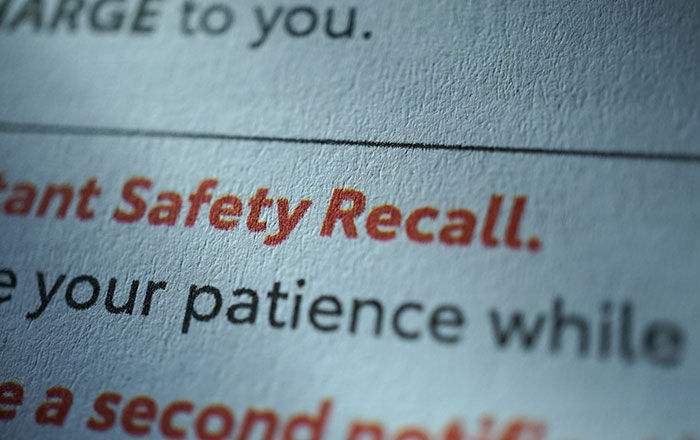Driving in the dark is a struggle for many South Carolinians, but even motorists who feel comfortable behind the wheel at night face an increased risk of getting in an accident at that time. That’s because depth perception, color recognition, peripheral vision, and visibility can be compromised in the dark. Following these tips can help you stay safe on the road, minimizing your chances of being involved in a nighttime collision.
1. Aim your headlights & make sure they’re clean
Many drivers fail to give their headlights the attention they deserve, assuming they’re working properly if they’re lit. However, that’s not always the case. Headlights can become misaligned over time, or through simple actions like changing a bulb. When this happens, the lights no longer illuminate the road in front of you to the best of their ability. You can easily test the alignment of your headlights by facing a wall and looking at where the beams point. From there, you can adjust the bulbs if necessary.
Keeping your headlights clean is also extremely important. Toothpaste and baking soda are two common household products that can do the job.
2. Clean your windshield & mirrors to eliminate streaks
Streaks that you might not even notice during the day can seriously impact visibility at night. Newspapers and microfiber cloths are great at cleaning windshields, so it’s a good idea to keep them in your car at all times.
3. Dim your instrument panel & dashboard lights
Bright lights inside the vehicle can reduce your view of the road when driving at night. They can also be distracting, so be sure to lower the brightness levels!
4. Look away from oncoming lights
Headlights – especially high beams – on other cars can temporarily blind drivers, so you should always avoid looking straight at them.
5. If you wear glasses, make sure they’re anti-reflective
Anti-reflective coating helps protect motorists from being impacted by light that reflects off glasses and distorts vision.
6. Avoid two-lane highways
The National Highway Traffic Safety Administration (NHTSA) says that two-lane highways may present the “worst-case scenario” for nighttime glare caused by other cars’ headlights, lower overall light, and complex roadway geometry. When possible, avoid these roads at night.
7. Watch out for deer
There were almost two million animal collision insurance claims in the US between July 1, 2020 and June 30, 2021, according to State Farm estimates. Deer are involved in more collisions than any other animal, and 2016 claim data showed that people in South Carolina had a 1 in 93 chance of crashing into one that year.
Deer – particularly bucks – tend to be most active at night, which means your chances of encountering them on the road are increased when it’s dark. Always remain vigilant and look for the reflection of their eyes as you drive.
8. Slow down to compensate for reduced visibility & stopping time
Visibility for normal headlights in the dark is just 250 feet, and about 500 feet with high beams. This means drivers have less time to react to something in the road at night, especially when driving at higher speeds. Slowing down can help minimize your risk of getting into an accident or hitting an animal.
9. Combat fatigue
Fatigue is more likely to occur at night, so listen to your body when it tells you that it’s tired. Get out of the car and stretch, walk around, or grab a cup of coffee. You might consider parking in a safe area to get some rest, or stopping at a hotel overnight if you’re on a long journey. Don’t push yourself too hard, as being rested is key to being a safe driver.
10. Drive defensively
You’re more likely to encounter drowsy or drunk drivers when it’s dark (the rate of fatal crashes involving alcohol impairment is almost four times higher at night, according to the NHTSA). That’s why it’s important to drive defensively by assuming that other drivers will make poor decisions on the road. Learning to anticipate other motorists’ reckless or negligent actions will make you better equipped to respond to those actions in a quick and safe way.
Injured in an accident? Contact McWhirter, Bellinger & Associates today
If you’ve been seriously injured in a car accident that wasn’t your fault, you may be eligible to file a lawsuit which can provide you with compensation for medical bills, pain and suffering, lost wages, disfigurement and scarring, and more.
The auto accidents attorneys at McWhirter, Bellinger & Associates have spent decades representing South Carolina auto accident victims, going up against insurance companies who will do just about anything to avoid paying out a fair sum. They know the ins and outs of South Carolina law, and fight hard to make sure their clients get what they deserve.
McWhirter, Bellinger & Associates offers free, no obligation case evaluations. We have offices across the Midlands of South Carolina, in Aiken, Camden, Columbia, Lexington, Newberry, Orangeburg, and Sumter.
Give us a call today at 888-353-5513. It won’t cost you anything to see if we can help.®

















